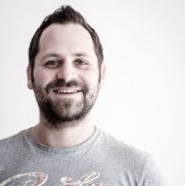New Year – New Me!
What my new year resolution has to do with working as automation engineer?
Exercise more, learn a new skill, save money.
Every new year we tell ourselves, next year is going to be better. I will be better. But do you think the same about your company? Your project?
Make your software run faster, add a new feature, lower the number of mistakes.
It is very simple to come up with a few things you want to do better. They can even sound very similar to what we intend on a personal level. Where we might improve our time to run a kilometre, your software could execute faster. Where we want to save money, preventing failure of your software will save you from losses. And where we might expand our social group, you could find new clients or users.
But we all know that most new year's resolutions fail anyway, so why bother?
Because it is not up to chance if you fail them or not. It is the way we phrase and approach them. You probably heard of SMART goals. Goals that are specific, measurable, achievable, relevant and time bound. So how do you put this into practice in private life or at work?
Assessment of the status quo
Most people think, they already know what is going on, so they just skip this part, but you really shouldn't. Getting a fundamental understanding of what is going on is the very base on which to write proper specific goals.
Take the time to gather information. Talk to people, find “known issues”, have an open eye for improvements and if you really want unbiased observations, get someone from the outside to assess your situation. Once you are sure, which issues you want to address, move on to the next step.
Deciding on measurement metrics
This is at the same time, the most obvious and the most complicated one. You will have to figure out, how to measure your progress. There is a myriad of possibilities what to measure. Lines of Code, commits per week, cyclomatic complexity metrics and so on.
A lot of these, just give you information, not feedback. So, you want to establish something that gives feedback. And the obvious answer for me as automation engineer to this is: Tests.
- You want to see if your software is getting faster? Use performance tests.
- You want to see if you are less prone to failure? Use functional tests.
- You want to make sure your new feature didn’t break anything? Use regression tests.
Not only will this provide the metrics needed for a measure of your goals, but it may also provide insights to the relevance for your business. For example, if you find that response times are actually already fast enough, and you don’t need to spend development time on it.
Defining your new years resolution
Make your software run faster, add a new feature, lower the number of mistakes.
Once you know where you stand, what you want to change or improve and have decided how to measure it, you have the foundation ready to specify what you want to achieve in 2022 for your company.
The timeframe of one year is already set, so one fifth of the SMART goal is done, what are you waiting for?
 About The Author:
About The Author:
Christian Piske
Automation Engineer
Qualysoft GmbH
 You need help? Contact our Experts!
You need help? Contact our Experts!
Peter Gradnitzer
Head of Test Automation & DevOps
Qualysoft GmbH

